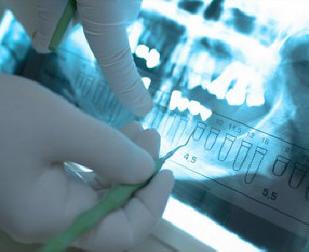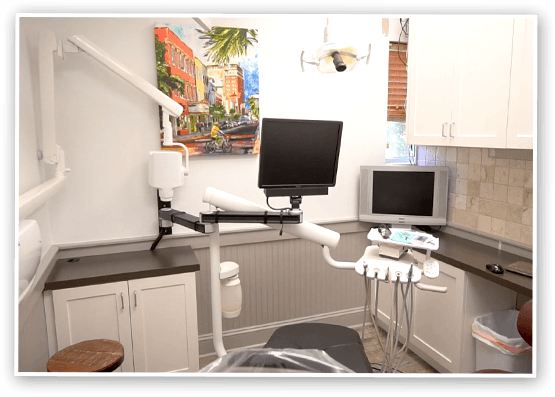A dental extraction (also referred to as exodontia) is the removal of a tooth from the mouth. Extractions are performed for a wide variety of reasons, including tooth decay that has destroyed enough tooth structure to prevent restoration. Extractions of impacted or problematic wisdom teeth are routinely performed, as are extractions of some permanent teeth to make space for orthodontic treatment.
Extractions are often categorized as “simple” or “surgical.”
- Simple extractions are performed on teeth that are visible in the mouth, usually under local anesthetic, and require only the use of instruments to elevate and/or grasp the visible portion of the tooth. Typically, the tooth is lifted using an elevator and, using dental forceps, rocked back and forth until the periodontal ligament has been sufficiently broken and the supporting alveolar bone has been adequately widened to make the tooth loose enough to remove. Typically, when teeth are removed with forceps, slow, steady pressure is applied with controlled force.
- Surgical extractions involve the removal of teeth that cannot be easily accessed, either because they have broken under the gum line or because they have not erupted fully. Surgical extractions almost always require an incision. In a surgical extraction, the doctor may elevate the soft tissues covering the tooth and bone and may also remove some of the overlying and/or surrounding bone tissue with a drill or osteotomy. Frequently, the tooth may be split into multiple pieces to facilitate its removal.
The most common reason for extraction is tooth damage due to breakage or decay. There are additional reasons for tooth extraction:
- Severe tooth decay or infection. Despite the reduction in worldwide prevalence of dental caries, still it is the most common reason for extraction of (non-third molar) teeth, accounting for up to two thirds of extractions.
- Extra teeth which are blocking other teeth from coming in
- Severe gum disease, which may affect the supporting tissues and bone structures of teeth
- In preparation for orthodontic treatment (braces)
- Teeth in the fracture line
- Fractured teeth
- Insufficient space for wisdom teeth (impacted third molars)
If you suspect you may benefit from tooth extraction in Goose Creek, South Carolina, contact Goose Creek Family Dentistry at 843-764-3081 to see Dr. Gilreath and associates. Our dentists can help you determine the best treatment for your smile.





